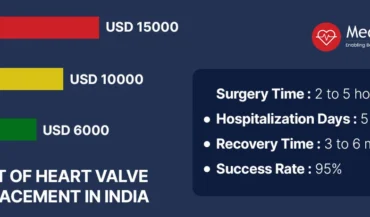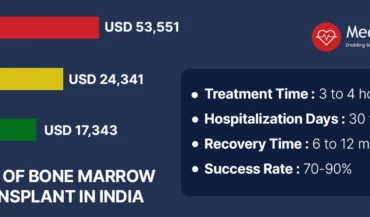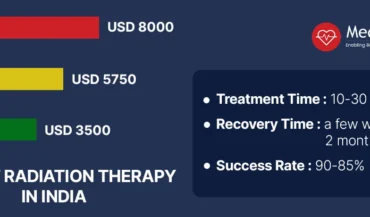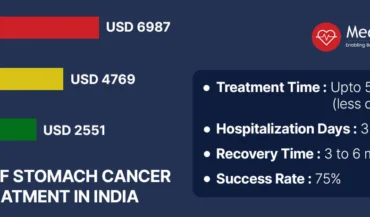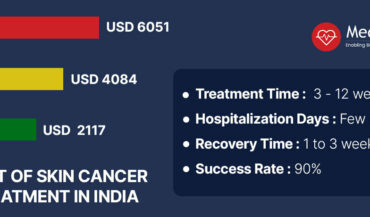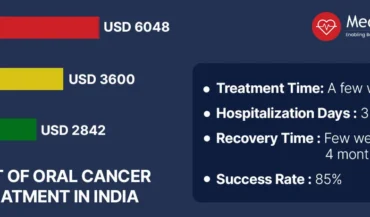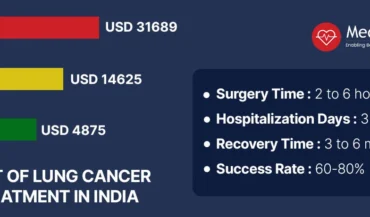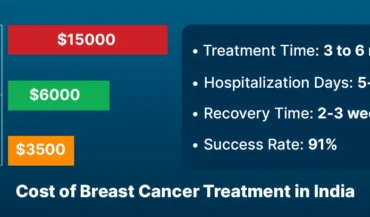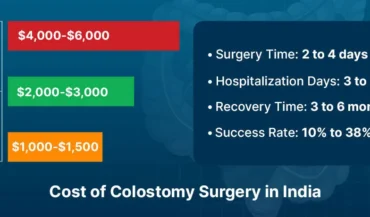When it comes to major decisions in our lives like investments and college, we always consult with many people and weigh different options. Then why do we hesitate to do the same for our health? Many of us feel like our primary doctor will get offended if we seek a second opinion. But, many a time your primary doctor will tell you to get a second opinion. This is especially true if you have been diagnosed with diseases like Prostate Cancer.
Prostate cancer occurs when the cells of the prostate gland in males begin to grow out of control. Though this cancer can be slow growing in many people, it poses a risk of spreading to other organs like your bladder. It can significantly affect your health and well-being. Some interesting facts and figures about Prostate Cancer are:
- Prostate cancer is the 4th most commonly diagnosed cancer worldwide
- It is one of the most common cancer in men but has a high survival rate
- The average age of prostate cancer is 65 years, but younger men can also be diagnosed with it.
- Around 84% of cases of prostate cancer are diagnosed when the disease is localized to the prostate and the other nearby organs.
Most cases of Prostate cancer can be managed with the correct medical intervention at the right time. After being diagnosed with prostate cancer, you may wish to obtain a second opinion. But, you may be confused about the process. Here, we have addressed the 5 Ws- the what, why, when, who and where of seeking a second opinion for prostate cancer.
What does seeking a Second Opinion mean?
A Second Opinion is just what it sounds like, an opinion from another doctor. Most patients avail a second opinion if they have been diagnosed with serious illnesses like prostate cancer.
It is a powerful tool that can help patients make the best healthcare decisions. Sometimes, your primary doctor may also recommend you to take a second opinion from an oncologist who has expertise in treating prostate cancer.
Why should you consider getting a Second Opinion?
If you have been diagnosed with Prostate cancer, several questions may be coming to your mind. What should I do next? What treatment should I get? Is my diagnosis correct? Where should I get my treatment? What is my prognosis?
Having these questions is understandable. As a patient, you need to be well informed about your disease. Though your primary doctor may have answered some of these questions, it is possible that you are still not satisfied with the answers you have received.
Here’s where a Second Opinion comes in handy. It can help you:
1. Explore different treatments for Prostate Cancer
In some cases, prostate cancer grows slowly and your doctor may suggest no treatment. On the other hand, some types of prostate cancer require an aggressive approach. Your doctor could recommend any of the given treatments for prostate cancer:
- Active Surveillance: If your prostate cancer is low-grade or low-risk then you may not require treatment immediately. Instead, the doctor will advise active surveillance. This involves regular rectal exams, blood tests, and even prostate biopsies to track the progression of your prostate cancer. If cancer worsens, then treatments will be necessary.
- Surgery: The surgical oncologist removes the prostate gland during the surgery for your prostate cancer.
- Radiation therapy: This treatment method uses high-energy radiation to destroy cancer cells.
- Hormone therapy: Since cells in the prostate gland require the hormone testosterone for their growth, hormonal therapy is used to stop the testosterone supply. This involves using medications or surgical removal of testicles to lower testosterone levels causing the cancer cells to divide more slowly.
- Chemotherapy: It employs drugs to eliminate cancer cells or slow their growth. This is recommended mostly for patients with advanced prostate cancer.
Since prostate cancer progresses differently in various patients, it is best to weigh the non-surgical and surgical treatments for you. If you feel like your primary doctor has not provided all treatment options, you can connect with another oncologist or urologist for a second opinion to know more about them.
2. Be confident and at peace
Prostate cancer can have overlapping symptoms with other conditions. This can lead to errors in its diagnosis. Although in the early stages, you will not see any signs. But once it progresses, you may experience symptoms of prostate cancer like
- Difficulty in urinating
- Blood in urine or semen
- Bone pain
- Frequent urination
- Pain during urinating
- Discomfort while stilling because of an enlarged prostate
These symptoms can be due to other conditions as well. It is possible that your doctor diagnosed you incorrectly with Prostate Cancer. Some conditions that can be misdiagnosed as Prostate Cancer are
- Benign Prostatic Hyperplasia (BPH): This condition leads to an enlarged prostate. But, it is not a precursor to prostate cancer. Men who have this condition are not necessarily at risk of getting prostate cancer. The enlarged prostate pushes against the bladder leading to a problem with urination. BPH and prostate cancer can have similar symptoms such as frequent urination and trouble urinating.
- Prostatitis: It is the inflammation of the prostate that can lead to increased levels of PSA in the blood. Men with this disease often experience pain and swelling in their prostate. Its symptoms include difficulty in urinating, chills, fever, and burning during urination.
- Other conditions like bladder infections can also cause urinary symptoms.
It is best to consider a second opinion from an oncologist or a urologist who has expertise in managing prostate cancer to eliminate the looming possibility of a misdiagnosis. This can protect you from inappropriate treatments. Once you get a definitive diagnosis, you will feel more confident and can then plan for your treatment peacefully.
When you must seek a Second Opinion for Prostate Cancer?
There’s no wrong time to ask for a second opinion. At any point in your prostate cancer treatment journey, if you feel that you are uncomfortable with the way things are moving, you can reach out to another oncologist or a urologist for a second opinion.
Here are certain situations that may warrant the need for a second opinion:
- You are unhappy with your current treatment: It is possible that your health isn’t improving and you feel stuck with your current doctor and treatment. A different oncologist who has experience in treating prostate cancer can re-evaluate your condition and prescribe additional treatments.
- Your doctor is not a specialist in Prostate Cancer: You can take a second opinion from an experienced oncologist who specializes in treating prostate cancer. This way you can get more information about your disease, its prognosis, and management. Being an informed patient will give your more control of your health and improve your outcomes.
- You feel it is the right thing to do: If your gut says that you should get a second opinion before beginning your treatment, then you should listen to it. This will give you the reassurance you require. It is your right to know more about your condition and alternative treatments.
Costing of Second Opinion for Prostate Cancer
You can avail Second Opinion for Prostate Cancer at an affordable price from MediGence
| Country |
Second Opinion Cost in USD |
Second Opinion with Telemedicine Cost in USD |
| India |
$200 |
$300 |
| UAE |
$500 |
$600 |
After obtaining your Second Opinion, we are sure that you will feel more in control of your health. Getting a Second Opinion is your right and you should exercise it well for a healthy future.
Who can give a Second Opinion for prostate cancer?
It is advisable that you connect to a specialist in prostate cancer who can give you the most accurate assessment of your condition. You can check the credentials of the oncologist, their experience, and whether the doctor is board-certified or not.
To ensure that you receive a beneficial second opinion, you can follow the given steps for your second opinion consultation:
- Ensure that you have the required medical records such as the results of your biopsy and blood tests.
- Prepare a list of questions to ask your doctor. Some questions that you can ask for your prostate cancer treatment are:
- What are the treatment options for me?
- Am I currently receiving the best treatment? If not, what are the alternatives?
- Are alternative treatment options available in my country? Which country provides the required treatment?
- What is my prognosis?
- How long will the treatment last?
- Get information about the cost of your second opinion consultation.
- Ask a trusted family member or friend to be with you. They can help you recall all the information discussed.
Where to find the right specialist for a Second Opinion?
Finding the right oncologist and urologist who can provide a second opinion for your prostate cancer may seem like an uphill task. You can ask your family, friends, and even your primary doctor to recommend a specialist for you. Another option is to get a second opinion from services like MediGence’s Second Opinion platform, Think Twice.
With MediGence, the process of getting a second opinion is made fruitful and hassle-free. Some of the advantages you can avail are:
- Board of expert urologists and oncologists: MediGence will prepare a team of expert urologists and oncologists to give a second opinion to you. These are highly experienced medical professionals who will go through your case meticulously and combine their opinions in a single comprehensive written report. You just have to submit the details of your case and sit back while your report is being created.
- On-time arrival of the second opinion: We understand that time is of utmost importance when it comes to diseases like prostate cancer. To cut your worry short, we will deliver the report within 5 days.
- Option for virtual consultation: You have the option to choose a second opinion with a virtual consultation. This will allow you to talk to the lead doctor for your case and understand the second opinion in detail.
- Technology integrated platform: ThinkTwice uses an intelligent clinical workbench that allows you to easily upload your medical history, results of diagnostic tests, and DICOM files.
If you decide to choose a second opinion for Prostate Cancer with MediGence, you must have certain documents ready. These comprise tests that are required before going for a second opinion. This will help the second opinion doctors in giving an accurate second opinion. Some of these are:
- Blood test results: This primarily involves your PSA blood tests. Prostate-specific antigen is a protein made by your prostate gland. Increased levels of PSA in the blood may indicate prostate cancer.
- Prostate biopsy results: In a prostate biopsy, the urologist will collect a small tissue sample from your prostate which will be analyzed by the pathologist under a microscope. The pathologist checks for the presence of cancer cells. This method is the main diagnostic tool for diagnosing prostate cancer. Thus, it is vital to submit the prostate biopsy report.
- Imaging test results: These include the results of your transrectal ultrasound, MRI, and PET scan that can help the doctor to study the presence and spread of your prostate cancer.
- Medical history: You should also provide information about your medications and treatments you received in the past.
The Second Opinion may differ from your ongoing /recommended treatment. What should you do then?
This can be a perplexing situation for you. But with MediGence, you have the following benefits:
- Your second opinion doctors will advise more suitable treatment options for you.
- You can then compare the risks and benefits of different treatments.
- Based on your preference, you can decide to go ahead with the treatment you find the best for your health.
- You can search if that particular treatment is available in your area. If not, MediGence can provide you access to the best hospitals and urologists or oncologists in the country where you wish to avail that treatment.
Reference Links:






 Sep 06, 2022
Sep 06, 2022 

